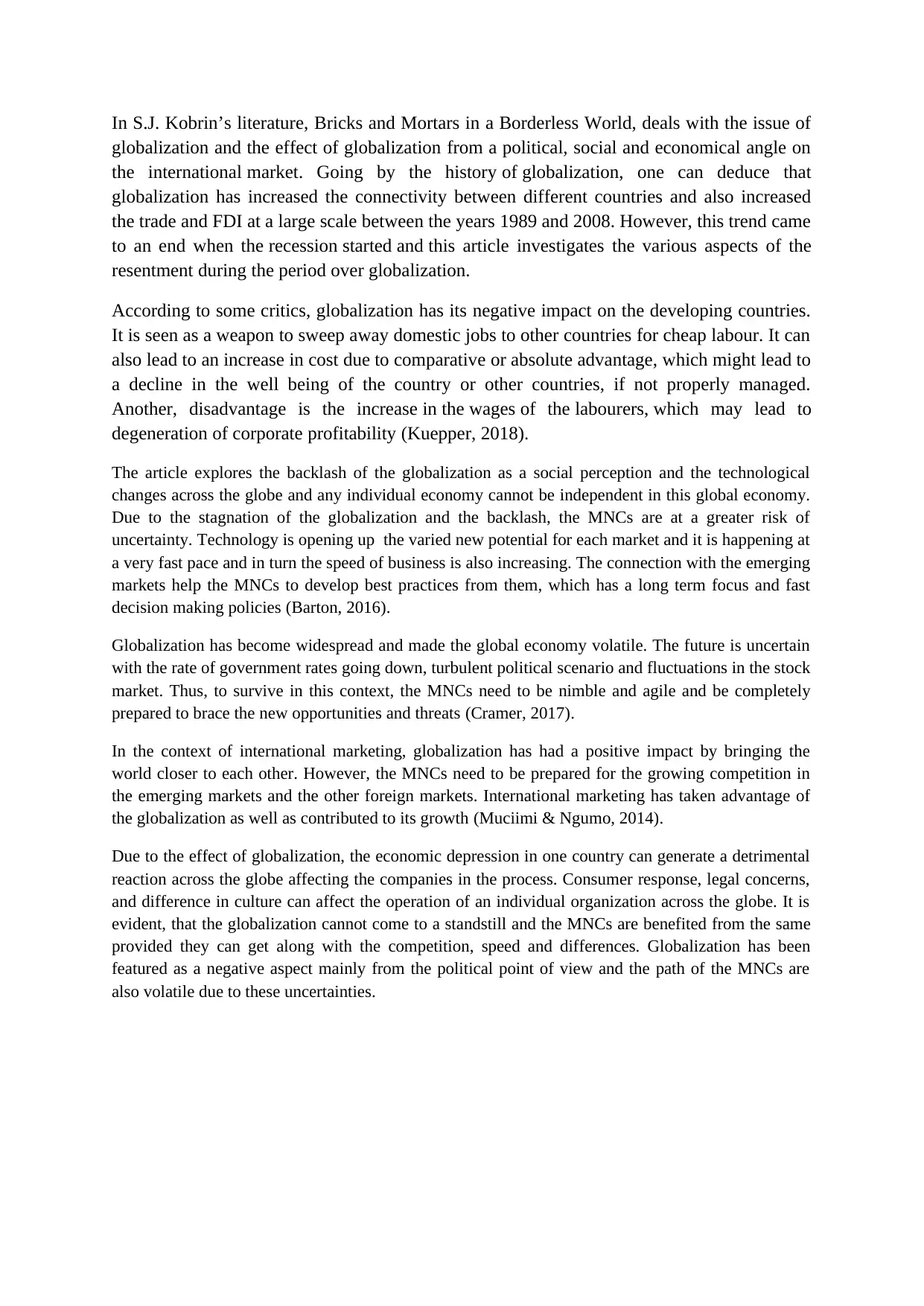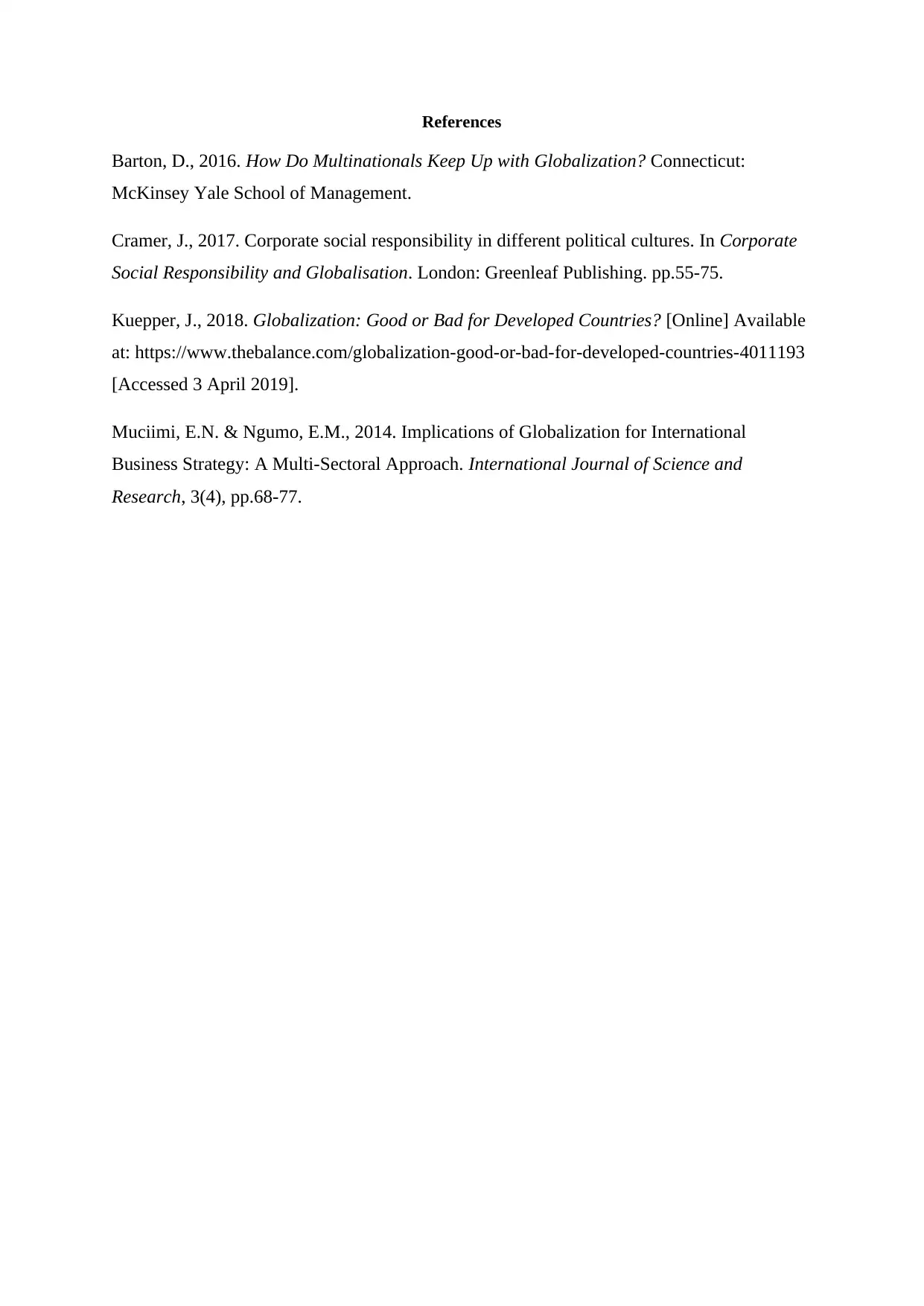1910-IB-Literature Review: Kobrin's Globalization Article
VerifiedAdded on 2023/01/16
|2
|686
|48
Literature Review
AI Summary
This literature review analyzes S.J. Kobrin's article, "Bricks and Mortars in a Borderless World," which examines globalization's multifaceted impact on the international market from political, social, and economic perspectives. The review highlights how globalization increased connectivity, trade, and FDI between 1989 and 2008, but this trend was disrupted by the recession, leading to resentment. The article explores the negative consequences of globalization, such as job displacement, increased costs, and wage increases, alongside the backlash of globalization as a social perception and the rapid pace of technological changes. The study also analyzes the risks faced by multinational corporations (MNCs) due to globalization stagnation and uncertainty, emphasizing the need for agility and preparedness. Furthermore, the review discusses the positive impact of globalization on international marketing, while acknowledging the growing competition in emerging markets. The analysis concludes that MNCs can benefit from globalization if they are prepared to adapt to competition, speed, and differences. The article also highlights that globalization has been featured as a negative aspect mainly from the political point of view and the path of the MNCs are also volatile due to these uncertainties.
1 out of 2








![[object Object]](/_next/static/media/star-bottom.7253800d.svg)